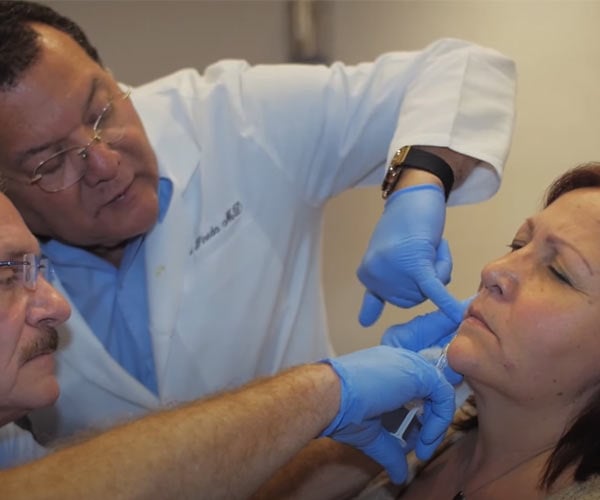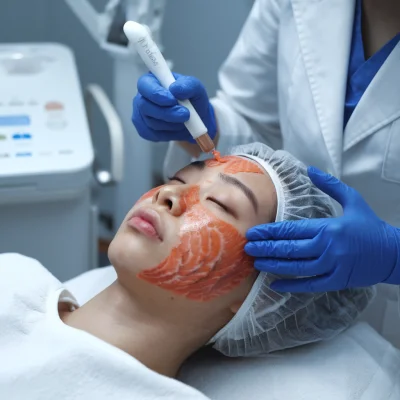Dentists have only recently begun to perform Botox® (botulinum toxin) treatments in significant numbers. But more and more dentists are adding this service to their practices, opening up new patient populations and revenue opportunities.
Despite some confusion among the general public and dentists themselves, board certified dentists can generally get certified to inject Botox. Regulations are set by state dental boards and vary from place to place, but it’s rare for dentists to be outright excluded from Botox certification.
So if you’re a dentist, should you enroll in a Botox training course for dentists and add the service to your practice? Perhaps. But first, understand what dentists can use Botox for and the possible benefits of adding it to your practice.
Botox in Dentistry: Most Common Uses
Dentists typically offer Botox for a select set of “dentistry-adjacent” applications:
- Helping patients adjust to new dentures: Botox can help relax and reshape the lips, helping patients adjust to newly installed dentures. This is among the most common Botox dental procedures.
- Treating high lip lines associated with dentures: Dentures can also reshape the lips themselves, with high lip lines a frequent complication. Botox can restore the patient’s original lip shape.
- Treating TMJ and bruxism: These common causes of facial pain can also wear down the teeth over time, so Botox for TMJ and bruxism qualifies as preventive dentistry.
- Treating gummy smile (reshaping the smile): This is a popular cosmetic Botox procedure in patients without specific dental complaints.
- Treating lip lines and lip-adjacent facial lines: Dentists know the mouth and near-mouth areas of the face well, so it’s natural for them to specialize in cosmetic Botox for nearby facial muscles.
Why Add Botox to Your Dental Practice?
Because most dentists can get clearance to perform Botox injections, you’re less likely to ask, “should I add Botox to my dental practice?” and more likely to wonder, “why should I bother?”
The answer(s) depend on your practice priorities and business objectives, but common arguments in favor of adding Botox to your dental practice include:
- Reaching new patient populations: Administering Botox helps you reach new patients who aren’t looking for a new dentist but do need a trusted Botox provider.
- Diversifying services: Dentistry is always in demand, but diversification is important for any business.
- Creating new revenue streams: Botox and related cosmetic services promise revenue streams separate from your core dentistry services, potentially boosting your practice’s profitability without much additional overhead.
- Enhancing your reputation as a comprehensive dental service provider: It’s still uncommon for dentists to offer Botox, so getting out in front of this trend could do wonders for your professional reputation.
Should You Take a Botox Dentist Course?
Unless you’re operating at peak capacity at the moment, you should take a Botox dentist course and consider adding Botox to your practice. If nothing else, you’ll learn all you need to know about Botox, facial anatomy, and Botox injection techniques. This knowledge could be useful down the road.
While you’re at it, consider dermal filler training for dentists as well. The applications for these two popular cosmetic treatments overlap considerably, and they’re often offered in conjunction. Your dental practice will be even stronger for having both in your repertoire.





